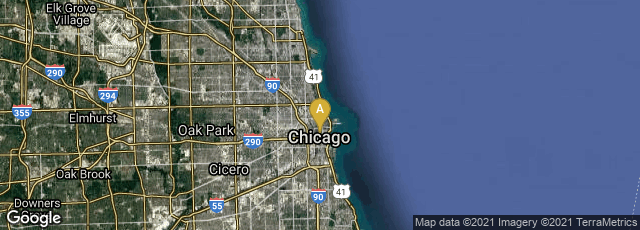

A: Chicago, Illinois, United States
On April 18, 2014 the University of Chicago Booth School of Business reported that The American Economic Association named University of Chicago Booth School of Business Professor Matthew Gentzkow winner of the 2014 John Bates Clark Medal, awarded to an American economist under the age of 40 who is judged to have made the most significant contribution to economic thought and knowledge.
The Clark Medal, named after the American economist John Bates Clark, is considered one of the two most prestigious awards in the field of economics, along with the Sveriges Riksbank Prize in Economic Sciences in Memory of Alfred Nobel.
Gentzkow studies empirical, industrial organization and political economy, notably with a specific focus on media industries, using large scale data sets. His recent studies included a set of papers that looked at political bias in the news media; a second set of studies that examined the impact of television on society from several perspectives; and a third set that explored questions of persuasion. A full list of those studies is available here.
"Mr. Gentzkow, 38, has used deeply researched, data-driven projects to examine what drives ideological biases in newspapers and how the Internet is remaking the traditional media landscape.
"He has also studied the societal impact of mass media, including how student test scores were affected by the introduction of television decades ago, and how the shift by media consumers to television ultimately reduced voter turnout.
“ 'Media has been a fun area to study because it combines rich economics with political and social aspects,' Mr. Gentzkow said in a telephone interview on Thursday. With the advent of the Internet and the ability to quickly analyze huge amounts of data, 'the set of questions that can be answered using economic methods has exploded,' he said.
"As automated text analysis became widely available, for example, it became possible to examine how news is presented by rapidly scanning newspaper articles for ideologically laden terms like estate tax versus death tax, or war on terror versus war in Iraq.
“ 'Economists had thought about this, but media had been a pretty small part of economics because the data weren’t as good,' Mr. Gentzkow said. 'This work would have been impossible 20 years ago.' . . . .
"In a 2010 paper, Mr. Gentzkow and Jesse M. Shapiro, a frequent collaborator and fellow professor at Chicago Booth, found that ideological slants in newspaper coverage typically resulted from what the audience wanted to read in the media they sought out, rather than from the newspaper owners’ biases.
"Research by Mr. Gentzkow and Mr. Shapiro from 2008 found that television viewing by preschool children did not hurt their test scores during adolescence. In fact, they found, there was actually a small benefit to watching television for students in homes where English was not the main language or the mother had less than a high school education" (http://www.nytimes.com/2014/04/18/business/media/university-of-chicago-economist-who-studies-media-receives-clark-medal.html?_r=0, accessed 04-18-2014).